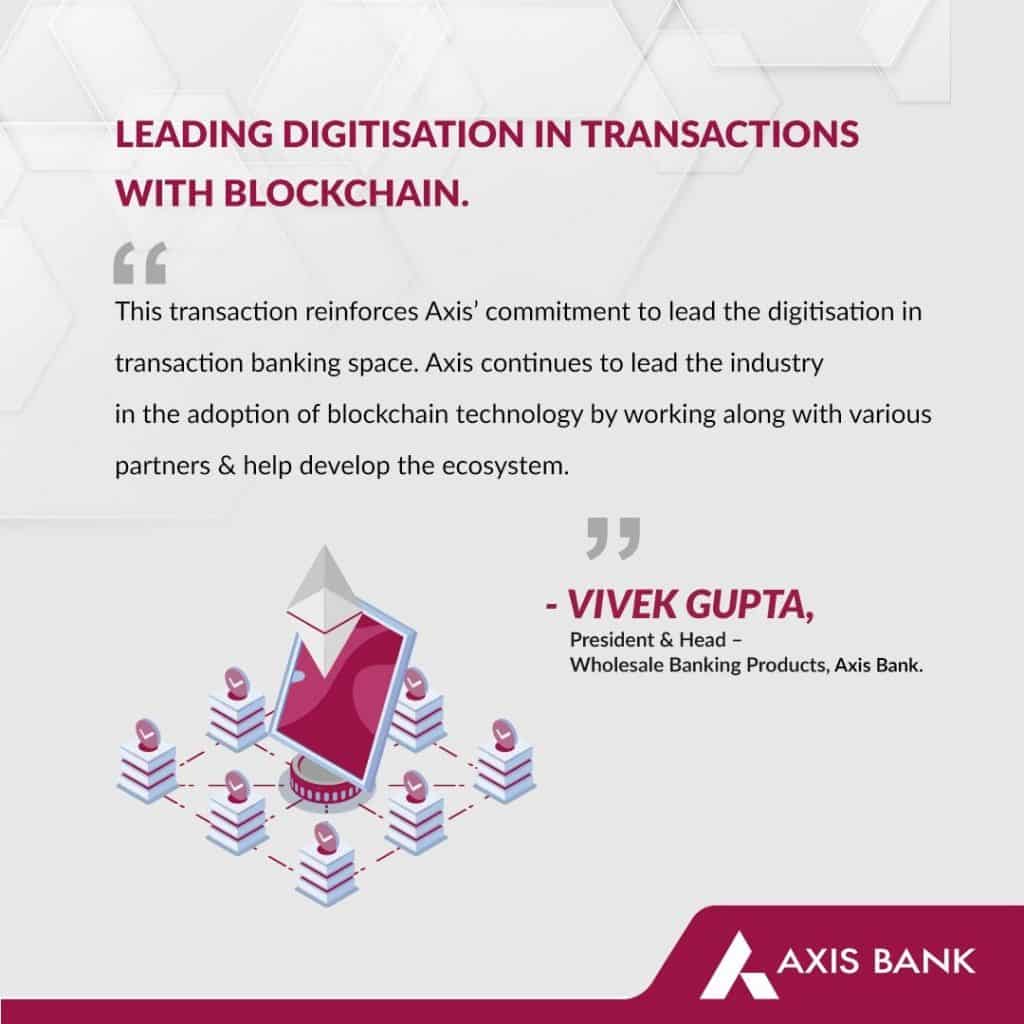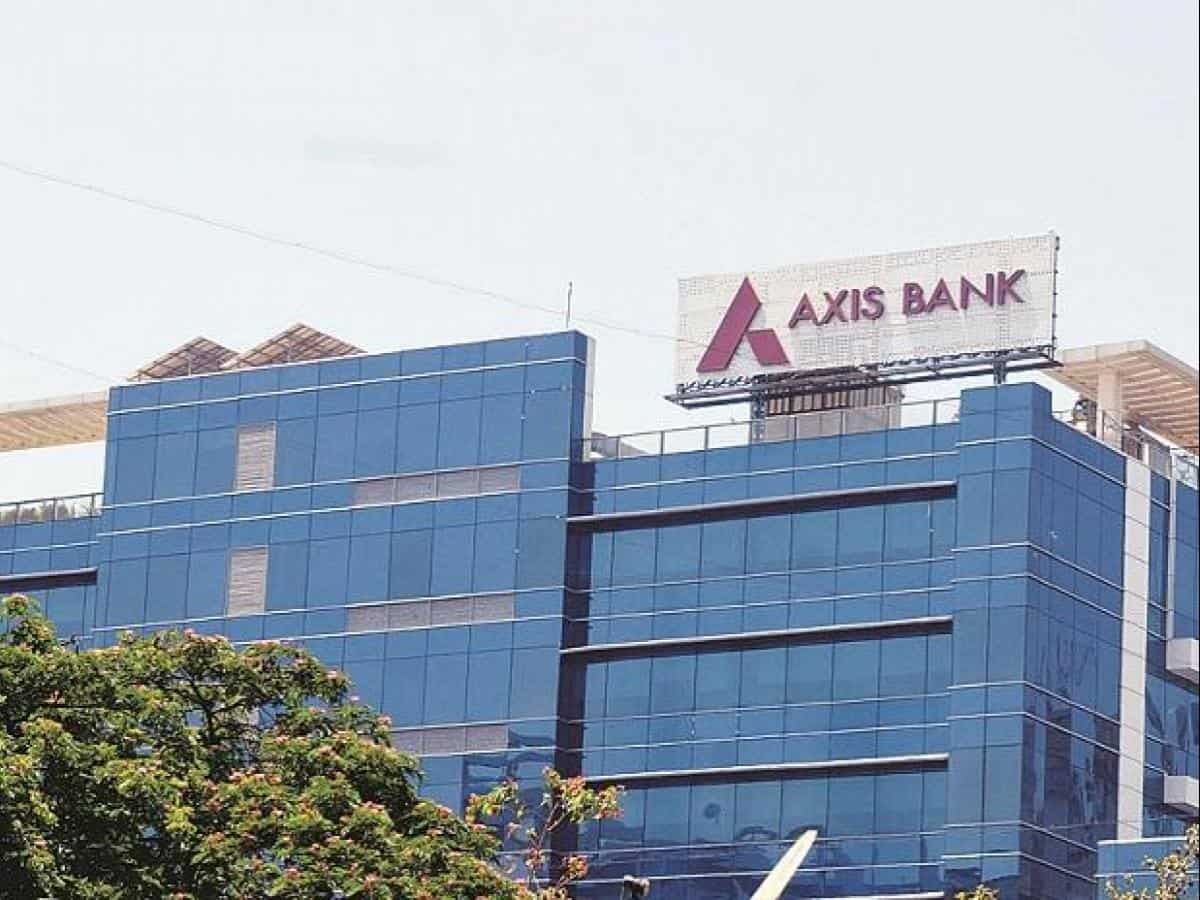On Monday, private lender Axis Bank announced that it has successfully executed the first blockchain-enabled domestic trade transaction with Arcelor Mittal Nippon Steel India, and Lalit Pipes & Pipes Ltd, using Secured Logistics Document Exchange (SLDE), a government platform.

India’s Ministry of Commerce and Industry developed and released the SLDE on Jul. 28, 2021, as a platform for digital document exchange using security protocols based on Blockchain technology. These protocols offer high levels of data security and authentication.
During the transaction, a letter of credit was drafted and letter of credit advice was provided, along with the digital presentation of the underlying trade documents, such as invoices and transport documents.
According to Axis Bank, the platform offers a seamless experience for all participants involved in the trade process. As a result, all parties involved in the transaction will be able to view the transactions and documents, which will result in better management of working capital requirements. With SLDE’s platform, you are able to effectively eliminate all historic problems associated with paper-based trade transactions, including limited transparency, the slow process of transferring physical documents, and the lack of an audit trail.
Through this transaction, Axis further reinforces its commitment to lead the digitization of the transaction banking space. Axis continues to lead the market with the adoption of blockchain technology, collaborating with various partners and developing the ecosystem as a whole
Vivek Gupta, President and Head (wholesale banking products) – Axis Bank
As part of its continuing effort to continuously improve its supply chain network, Arcelor Mittal Nippon Steel India is always seeking to involve various stakeholders such as customers, suppliers and bankers in its operation and delivery. Taking part in this transaction with Axis Bank is a step in that direction
Amit Harlalka, Deputy Chief Financial Officer – Arcelor Mittal Nippon Steel India
Besides the blockchain platform, the government-backed blockchain platform also includes an emissions calculator that allows for commodity-wise comparison of greenhouse gas (GHG) emissions and the cost of transportation as well as the environmental cost of moving goods by road and rail.
While the government of India does not have any formal discussions or regulation on cryptocurrencies, several state and central governments have taken proactive measures to implement blockchain technology across various sectors of commerce and development.
To assist in building real-world solutions for real-world problems, the government of the state of Telangana launched an initiative at the end of last year that offered assistance to early-stage Web 2.0 and Web3 startups and blockchain developers.
































